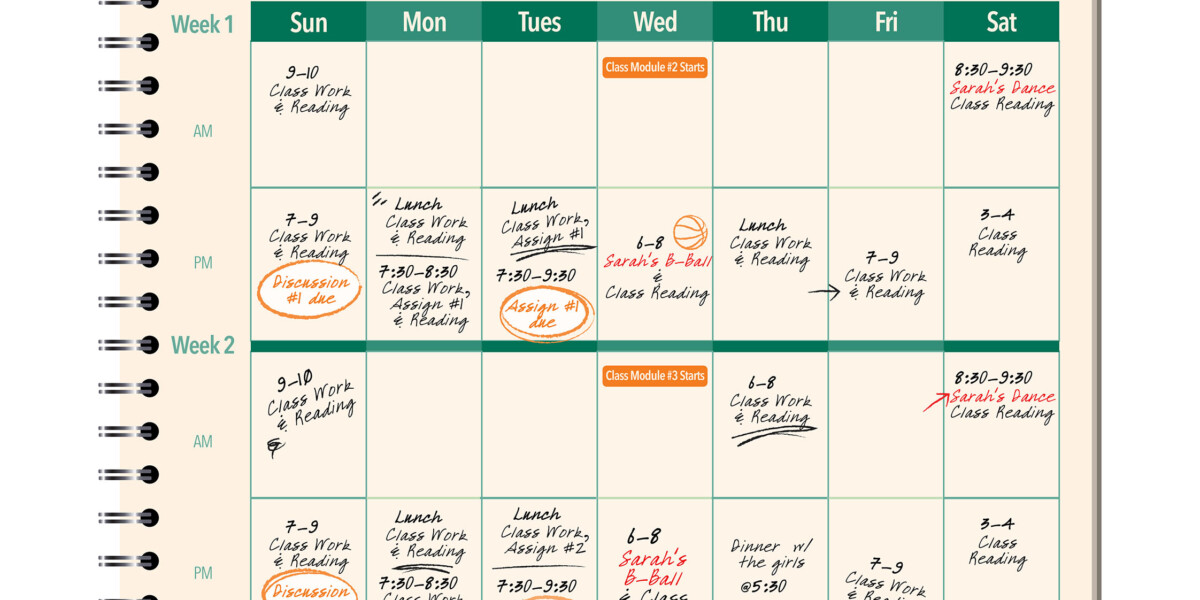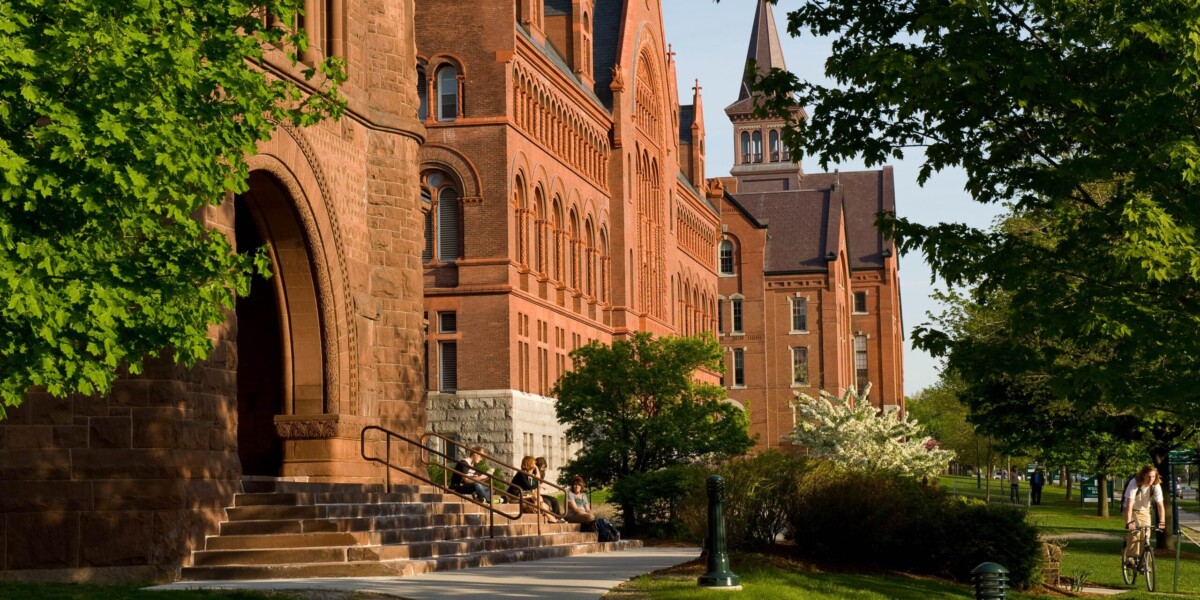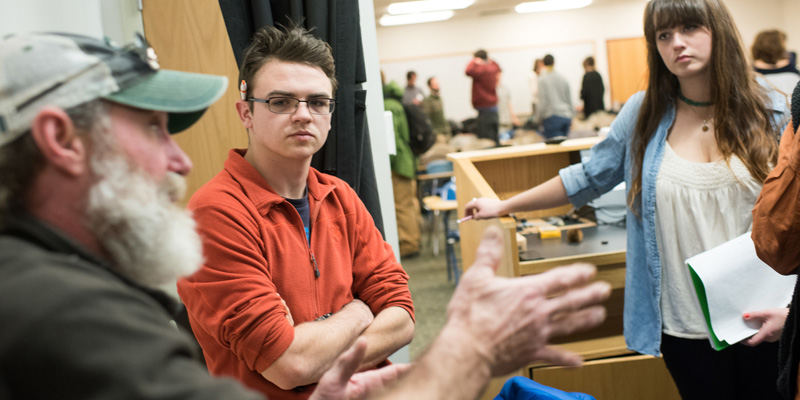(Photo: Flickr)
By Matt Sayre
I live in Hinesburg, Vermont, a small, rural community of approximately 4,000 residents, not far from Vermont’s biggest city, Burlington. Hinesburg is usually pretty quiet, but busy roads leading into Burlington cut right through the center of town, and these roads are full of commuters every morning.
I’m one of those commuters. Like everyone else passing through, most days I end up in stop-and-go traffic for a short part of the trip. I’m an impatient driver who hates traffic, which is part of the reason I live in Vermont. But something beautiful happens every day in the fray, so I don’t mind spending time in this jam. There’s a sharp corner where one of the busy roads intersects with the other. There’s a stop sign for only one of the roads, yet people on both roads take a moment to stop. Most drivers with the right of way—without a stop sign or any other traffic signal—pause to let people in. This simple action seems somewhat profound to me. There’s a lesson in it.
In May, Senator Bernie Sanders announced his candidacy for President of the United States. His agenda could be viewed by some as a call for an expansion of government programs to care for US citizens. He might be seen as the opposite of libertarian candidates like Rand Paul. As I think about establishing the right balance of government intervention and independent citizenship, where neighbors care for each other without regulation, I think of the roads converging in Hinesburg.
Political Progress through Active Citizenship
Vermont is known for its active citizenship and town-meeting-style democratic decision-making. For most of the 20th Century, Vermont was predominantly Republican; however, Vermont has more recently become known as a liberal state, voting mostly for Democratic representatives. This change may demonstrate that there are different ways to pursue progress and new ideas of what progress is, and that over time, perspectives shift. As citizens, we should work to become informed about different approaches to solving problems and making progress and be open to considering new knowledge.
Research at The University of Vermont helps create new knowledge with the potential to inform action, helps determine what progress really looks like, and identifies the best approaches to make progress.
Research programs at the Gund Institute aim to develop new ideas, test existing theories, and put the best of both into real-world practice. The Vermont Legislative Research Service (VLRS) strives to provide non-partisan policy research support to Vermont State Legislators, while concurrently promoting students research skills. The Center for Rural Studies works with people and communities to address social, economic, and resource-based challenges through applied research, community outreach, program evaluation, and consulting. The Agroecology and Rural Livelihoods Groups (ARLG) research and teaching efforts focus on developing and applying transdisciplinary approaches that analyze interactions between agriculture, livelihoods, and environmental conservation in tropical and temperate rural landscapes. Vermont’s Transportation Research Center (TRC) is a hub for innovative and interdisciplinary research, education, and outreach on sustainable transportation system solutions. The Center for Research on Vermont is an interdisciplinary network of scholars and community members focusing on the study of Vermont.
These are just a few resources to help us make informed decisions, because each one of us must make a decision. Even deciding not to take action or vote is a decision with real effects. Although neighbors helping neighbors make progress along our commute to work, with no need for a traffic signal governing our actions, might lead me to think that a libertarian political philosophy and policies designed to maximize autonomy, freedom of choice, and individual judgement is the best way to make progress, I know this is an oversimplification. I need to learn constantly and consider the full range of possible solutions. I wholeheartedly agree with Bernie that we must address the 40-year decline of our middle class and the growing gap between the very rich and everyone else, and I believe he is one candidate who will address that issue head on.
So I often land in the middle, somewhere between the far “left” and far “right.” But I worry because it is my understanding, based on the research I’ve reviewed and the learning I’ve done through many years of life, coursework, and professional work, that significant changes must be made, and I’m not sure my more moderate thinking and voting will lead to the changes we need to make true progress.
Should I support candidates with a more aggressive agenda? Should I align myself with one of the more “extreme” political philosophies? As I sit in traffic, I’ll continue to ask these questions. I’ll keep learning so that when I vote, my action will be an informed one. Maybe I’m reading too much into the simple act of busy commuters letting other drivers onto the main road. Or maybe it’s is an example of what’s possible when you leave problem solving to the citizens of a community.
 Matt Sayre is a senior program developer at University of Vermont Continuing and Distance Education. He develops educational programs focused on sustainable food and agricultural systems, and his family is growing their own organic fruit farm and gluten free farm bakery in Hinesburg.
Matt Sayre is a senior program developer at University of Vermont Continuing and Distance Education. He develops educational programs focused on sustainable food and agricultural systems, and his family is growing their own organic fruit farm and gluten free farm bakery in Hinesburg.





